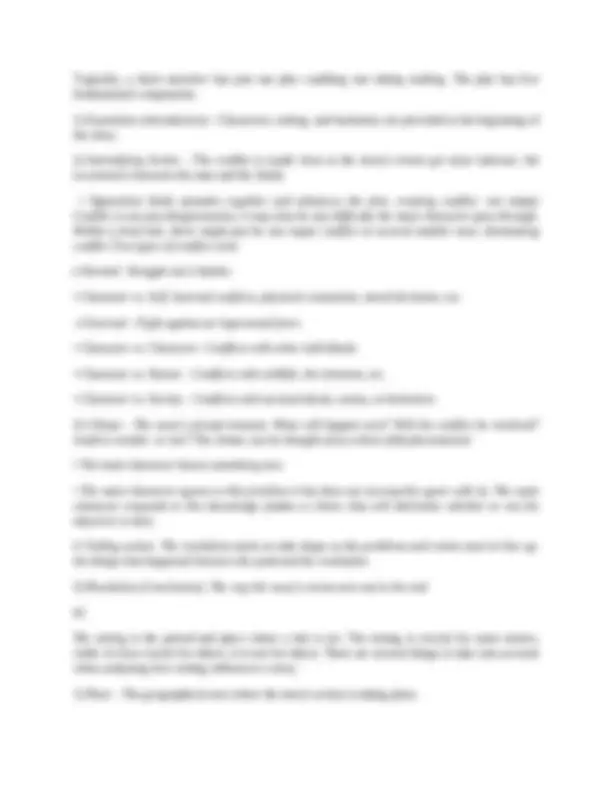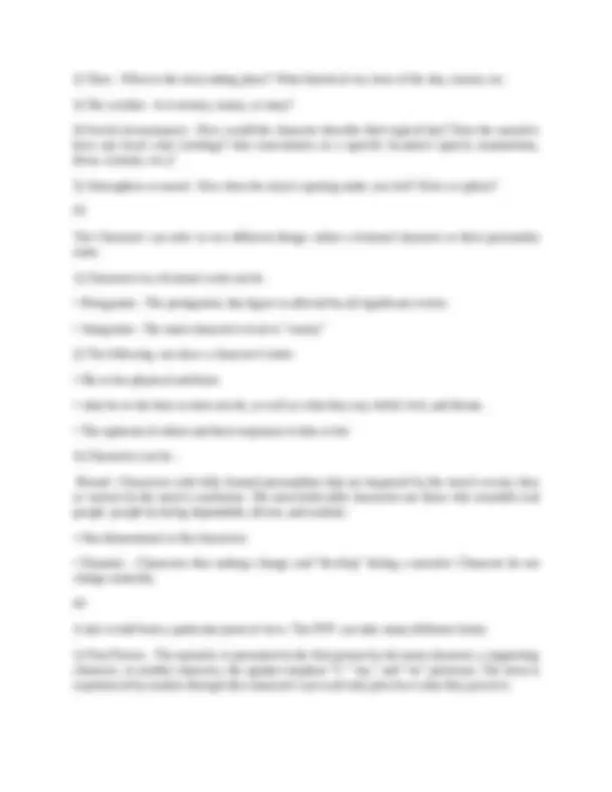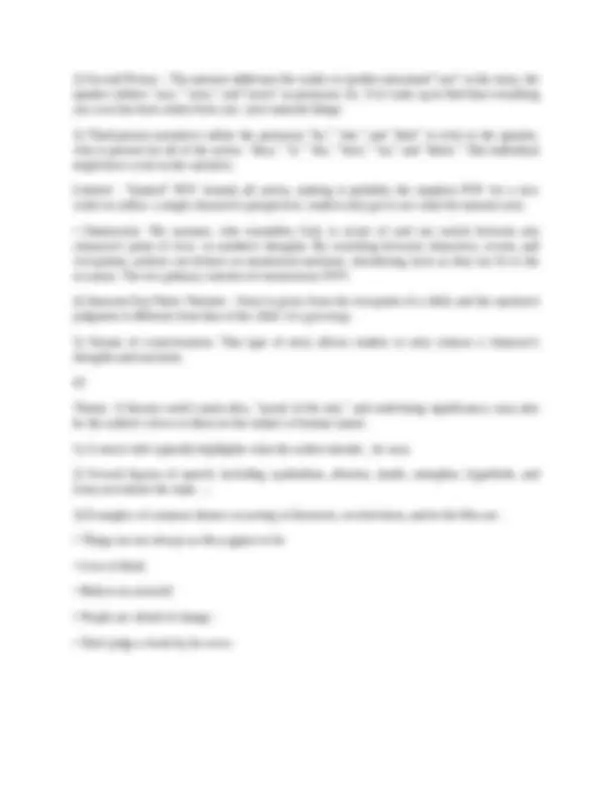





Study with the several resources on Docsity

Earn points by helping other students or get them with a premium plan


Prepare for your exams
Study with the several resources on Docsity

Earn points to download
Earn points by helping other students or get them with a premium plan
Community
Ask the community for help and clear up your study doubts
Discover the best universities in your country according to Docsity users
Free resources
Download our free guides on studying techniques, anxiety management strategies, and thesis advice from Docsity tutors
The significance of literature in the modern era. It delves into the various functions of literature, including its ability to teach, discover, express, inform, question, and even heal. The document highlights how literature is shaped by history and can create a bridge between the past and present, allowing readers to connect with people from diverse cultures, races, societies, and eras. It also discusses the role of literature in providing possibilities and escape, as readers can temporarily immerse themselves in new worlds and gain fresh perspectives. The document further categorizes literature into fictional and non-fictional genres, and examines the key elements of fiction, such as plot, setting, character, point of view, and theme. Additionally, it explores the use of figurative language and various figures of speech in literature, which can enhance the intellectual and emotional impact on the reader.
Typology: Study notes
1 / 6

This page cannot be seen from the preview
Don't miss anything!




Our Lady of Fatima University – Antipolo Campus College of Hospitality and Institutional Management WORLD LITERATURE 411
Submitted by: Jefferson S. Marques Section: BSITM-TTO 4-A-
1. Define Literature
of literature is largely influenced by history. Every book, poem, and chapter of our history contains some aspect of political or cultural history. Occasionally, literature creates a great link between the past and the present. Studying the characters' lives and historical epics requires being able to read material like this in person.
2. Encourages compassion and comprehension One of the best ways to immerse oneself in another person's language and experiences is to read a book. Connecting with people from many cultures, races, societies, and eras depend heavily on your capacity to recognize and know other people's sentiments. They help someone take a deeper look at elements of life that are unfamiliar to them, which can change their point of view. 3. Possibilities and escape Reading can take us to new places and allow us to see other people's original ideas. It's a wonderful tool and a type of entertainment that allows us to escape. When you're having a bad day, getting upset at work, or making decisions about your new life, books can let you temporarily escape to another world and live there. Novels give readers the chance to enrich their lives in a variety of ways by offering insight, amusement, and creative stimulation. But it's unquestionably more than just a book's worth of words. We can observe that e-books, Kindle, Wattpad, and online reading are becoming more and more popular in the twenty-first century. They are generating conversation, a distinct universe, and fresh viewpoints. 3. Kinds of Literature ( fictional/non-fictional)
The Plot is the order of events in a tale or plays that the author uses to develop the main concept. The A plot is a carefully thought-out sequence of actions with a beginning, middle, and end.
The Character can refer to two different things: either a fictional character or their personality traits.
A tale is told from a particular point of view. The POV can take many different forms:
Theme: A literary work's main idea, "moral of the tale," and underlying significance; may also be the author's views or ideas on the subject of human nature.